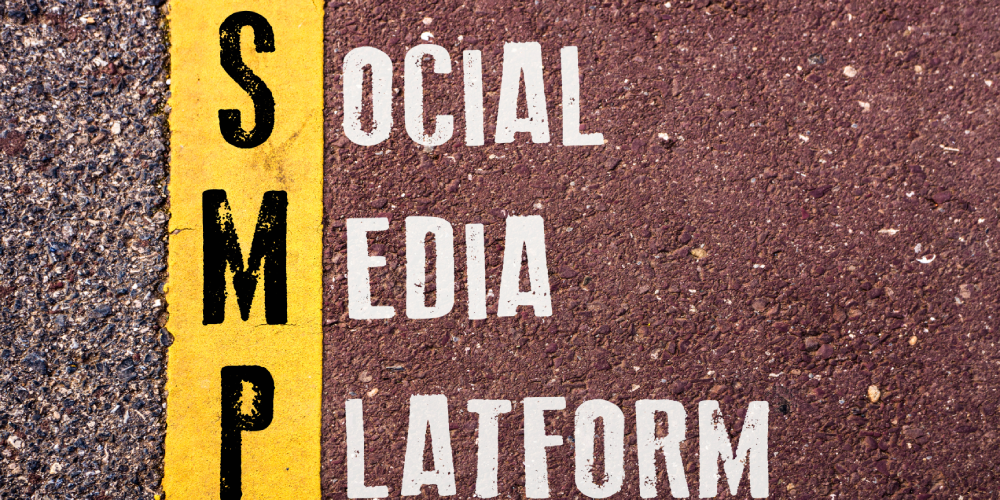
To establish a robust online presence is paramount for any brand aiming for success. Social media platforms have emerged as indispensable tools for brand building, offering unparalleled reach, engagement, and targeting capabilities. However, with a multitude of options available, selecting the right platforms can be overwhelming. To sail effectively, we’ve handpicked only the top social media platforms that can elevate your brand to new heights.
1. Facebook
With over 3 billion monthly active users, Facebook reigns supreme as the largest social media platform globally. Its diverse user base and advanced advertising tools make it an ideal choice for brand building. By leveraging Facebook’s features such as Pages, Groups, and Ads, you can facilitate brand awareness, customer engagement, and lead generation. In addition, Facebook’s robust analytics provide valuable insights to optimize your brand’s performance.
2. Instagram
As a visual-centric platform, Instagram boasts more than 2 billion monthly active users, making it a powerhouse for brand storytelling and visual marketing. The platform’s emphasis on high-quality imagery and video content enables brands to showcase their products or services creatively. Features like Instagram Stories, IGTV, and Shopping make it conducive for driving sales and fostering brand loyalty. According to research statistics, more than 83% of Instagram users discover new products and services on the platform, highlighting its potential for brand discovery and conversion.
3. X (Formerly Twitter)
X or previously-Twitter’s real-time nature and conversational format make it an invaluable platform for brand communication and customer engagement. With over 400 million monthly active users, X offers a dynamic environment for brands to participate in trending conversations, share updates, and provide customer support. Its advertising options, including Promoted Tweets and Trends, enable brands to amplify their reach and visibility effectively. Moreover, X serves as a hub for influencers and thought leaders, facilitating collaborations that can enhance your brand’s credibility and reach.
4. LinkedIn
Targeting professionals and businesses, LinkedIn boasts more than 800 million members, making it a cornerstone for B2B brand building and networking. The platform’s focus on career development, industry insights, and thought leadership positions it as an ideal platform for establishing authority within your niche. Brands can leverage LinkedIn’s Company Pages, content publishing platform, and targeted advertising options to engage with relevant audiences, recruit talent, and forge valuable partnerships. Notably, LinkedIn’s organic reach often outperforms other platforms, making it a cost-effective choice for brand visibility.
5. YouTube
With over 3 billion logged-in monthly users, YouTube reigns as the premier video-sharing platform globally. Brands can harness the power of video content to educate, entertain, and inspire audiences, thereby fostering deeper connections and brand loyalty. Whether through tutorials, product demos, or branded storytelling, YouTube offers a versatile canvas for showcasing your brand’s personality and value proposition. Additionally, YouTube’s robust advertising options, including TrueView ads and sponsored content, enable brands to reach highly targeted audiences and drive conversions effectively.
6. TikTok
TikTok has surged in popularity, amassing nearly 2 billion monthly active users, particularly among younger demographics. Its short-form video format and algorithm-driven content discovery make it an ideal platform for brands looking to tap into viral trends and engage with Gen Z and millennial audiences. By crafting authentic, entertaining content that aligns with TikTok’s culture, brands can foster organic reach and virality. Moreover, TikTok’s advertising solutions, such as In-Feed ads and Hashtag Challenges, offer opportunities to amplify brand awareness and drive user-generated content.
7. Pinterest
Pinterest serves as a visual discovery platform, with over 450 million monthly active users seeking inspiration and ideas across various categories. Brands can leverage Pinterest’s visual search capabilities and shoppable Pins to showcase products, drive website traffic, and facilitate purchase decisions. The platform’s niche-focused communities and long-lasting content make it conducive for brand visibility and engagement. Statistics reveal that 90% of weekly Pinners have made a purchase based on content they discovered from brands on Pinterest, underscoring its potential as a sales-driving platform.
8. Snapchat
Snapchat boasts over 300 million daily active users, primarily comprising younger demographics, making it an ideal platform for brands targeting Gen Z and millennials. Its ephemeral content format, augmented reality (AR) features, and engaging filters provide opportunities for brands to create interactive and immersive experiences. Whether through sponsored lenses, branded filters, or Snap Ads, brands can leverage Snapchat to drive brand awareness, engagement, and even direct sales. Additionally, Snapchat’s Discover section allows brands to publish curated content and reach a broader audience.
9. Reddit
Reddit, often referred to as the “front page of the internet”, attracts over 60 million daily active users who are passionate about niche topics and communities. Brands can tap into Reddit’s vast user-generated content ecosystem by participating in relevant discussions, hosting Ask Me Anything (AMA) sessions, or creating branded subreddits. While advertising options on Reddit are limited compared to other platforms, organic engagement and word-of-mouth marketing can yield significant results for brands that understand and respect Reddit’s community guidelines and culture.
10. WhatsApp
With above 2.5 billion monthly active users and rising, WhatsApp offers a unique platform for brands to engage with customers on a personal level through one-on-one conversations and group chats. Brands can utilize WhatsApp Business features such as automated messages, quick replies, and catalog showcasing to provide customer support, deliver personalized offers, and facilitate seamless transactions.
Moreover, WhatsApp’s end-to-end encryption ensures privacy and security, enhancing trust and loyalty among users. WhatsApp also features Channels, with which users can connect and interact directly with companies, professionals etc.
11. Discord
Discord, originally designed for gamers, has evolved into a versatile platform with over 150 million monthly active users across various interests and communities. Brands can create and manage Discord servers to cultivate engaged communities, host live events, and provide exclusive content or perks for members. Discord’s voice chat, video conferencing, and text channels offer multiple avenues for brands to interact with their audience in real-time, fostering deeper connections and brand advocacy.
13. Clubhouse
Clubhouse, an audio-based social networking app, has gained rapid popularity, boasting over 11 million weekly active users. Brands can leverage Clubhouse’s rooms and discussions to host live audio conversations, panel discussions, and Q&A sessions, positioning themselves as industry experts and thought leaders. While Clubhouse currently lacks traditional advertising options, brands can benefit from organic exposure, network with influencers, and build relationships with a highly engaged audience.
Each of these social media platforms presents unique opportunities for brand building, catering to diverse audience demographics, interests, and communication preferences. By understanding your target audience, setting clear objectives, and crafting tailored content strategies, you can effectively utilize these platforms to elevate your brand’s visibility, engagement, and ultimately, drive business growth in the competitive digital landscape.
Resources:
Digital Boost
Highperformr
Marketing Week
Social Bee

